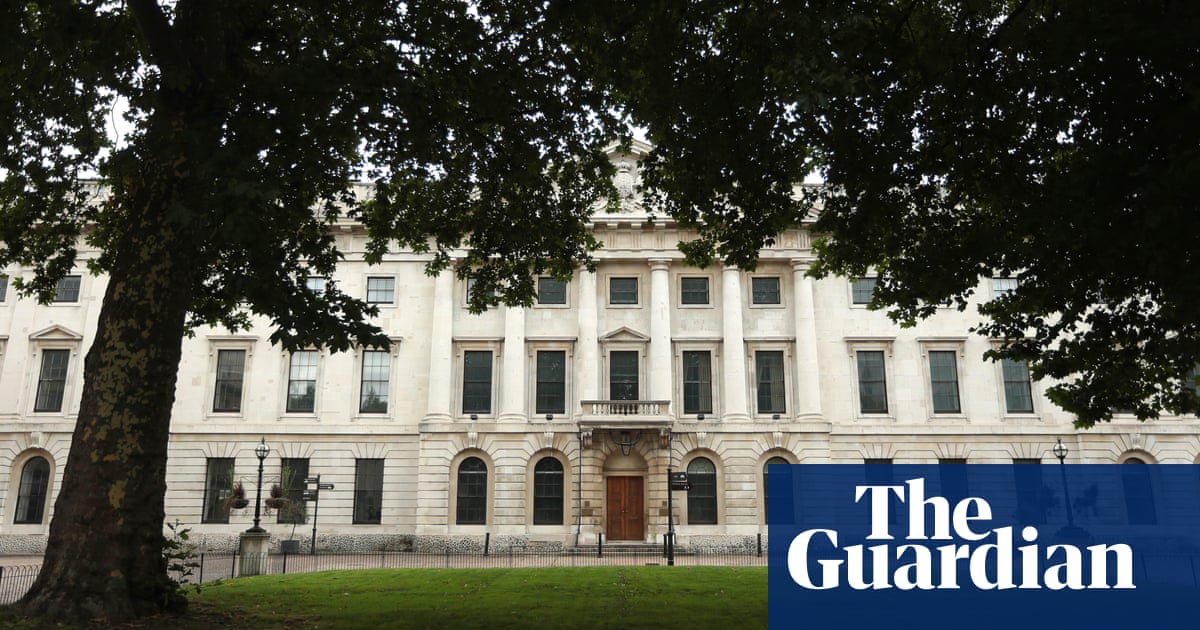
China has temporarily shelved plans to build a new embassy in London, angrily accusing the British government of not doing enough to force through planning permission for the project.
China had been given until Thursday to file an appeal to Tower Hamlets council in east London after the proposals for the embassy were rejected.
Beijing bought the Royal Mint Court site for its new embassy in 2018 for £255m, with the plan to move from its long-term but relatively cramped site in Portland Place, near Regent’s Park.
Chinese officials appear to have decided that rather than appeal through the local Tower Hamlets planning process, where they have relatively little chance of success, they want central government to intervene and give assurances that it will back a resubmitted application.
The UK Foreign Office is aware that if it does not intervene, its already strained relations with Beijing will be damaged further.
The Chinese foreign ministry in a statement urged the British government to meet its “international obligation” to help it build a new embassy, and said China wanted to find a solution “on the basis of reciprocity and mutual benefit”.
China wants to build a 65,000-sq metre (700,000-sq ft) embassy, which would be its biggest mission in Europe and almost twice the size of its embassy in Washington. A decision to build such a large embassy would be proof that China regarded relations with the UK as critical since Brexit.
Planning officers in Tower Hamlets council initially accepted the proposal but local elected councillors overruled them in late 2022, rejecting it on security grounds and adding that the planned size of the embassy was inappropriate for the area.
With the appeal date passed, China would now have to resubmit its planning application, but the Chinese government is looking for assurances that the central government will use its powers to call in the application.
Chinese officials have repeatedly raised the issue with the British government but it is not clear if the issue has become such a sore point it is delaying plans for the foreign secretary, James Cleverly, to visit China – an intention he has announced but not yet set a date for. The ambassador’s residence in Beijing is being upgraded.
In February the London mayor, Sadiq Khan, said there were no sound planning reasons for him to intervene to overturn Tower Hamlets council on the issue.
The area around the Grade II-listed site bought by the Chinese has a large Muslim population, however, and there is some political hostility to Beijing due to the long-term suppression of Muslim Uyghurs in Xinjiang region.
In January 2021 a motion was tabled at a Tower Hamlets full council meeting asking the local authority to rename roads around the site “Tiananmen Square”, “Uyghur Court”, “Hong Kong Road” and “Xiaobo Road” as “as acts of solidarity” with human rights protesters.
Objections to the plans included fears of “possible terrorist attacks such as bomb blasts” and that the site could be “turned into a fortress and would be a terrorist target”. Others raised concerns about local GP practices struggling, protests in their streets and increased CCTV.
The Royal Mint was built in 1809 on the site of the Cistercian abbey of St Mary Graces, the cemetery of which contained mass graves for victims of the Black Death. Councillors have warned that building work could unearth the bodies of thousands of plague victims.
The Royal Mint’s surrounding offices have remained empty since the last gold sovereign was struck there in 1975.












